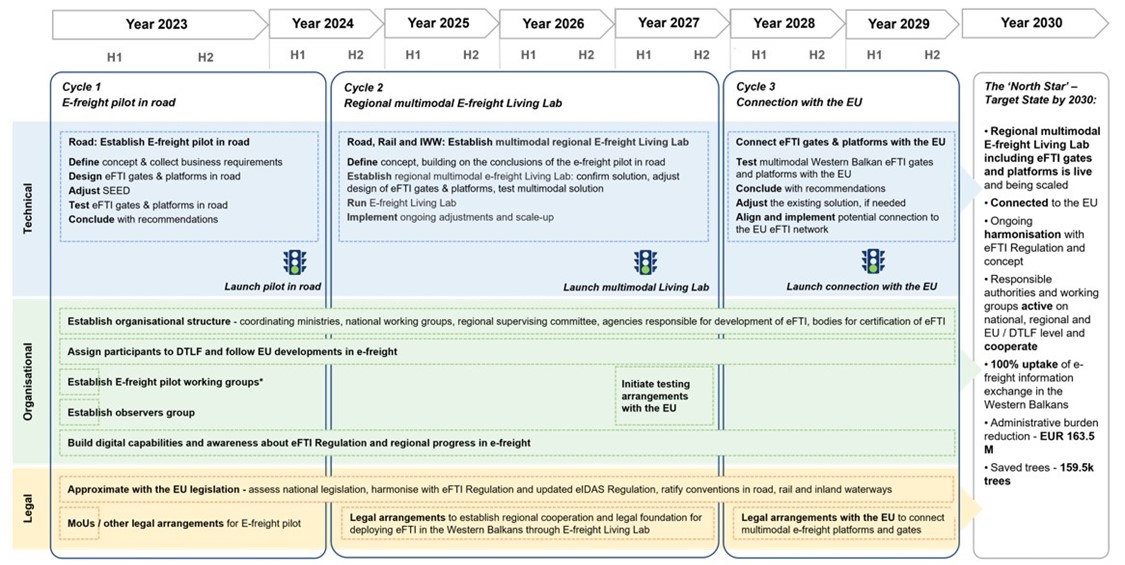Technical Assistance for e-freight in Western Balkans
The EU’s Sustainable and Smart Mobility Strategy (SSMS) has set a milestone of 2030 to make freight transport paperless, while the SSMS in Western Balkans has set the same objective by 2035. In the past period, the region focused on infrastructure works, mostly in road transport, resulting in almost non existing multimodality. This project focused on identifying challenges preventing deployment of e – freight in Western Balkans and implementation of Regulation (EU) 2020/1056 of the European Parliament and of the Council of 15 July 2020 on electronic freight transport information (eFTI).
The main objective of the TA was setting the basis in achieving an interoperable electronic freight information exchange system and enabling wider use of digital technologies for fulfilling regulatory information requirements. Administrative burden for logistics operators will be reduced, and multimodal transport facilitated. TA covered road, rail and inland waterways. The project included:
- European Union institutional and legal framework and best practice examples
- State of play and gap analysis by Regional Partners
- Economic and Environmental impact assessment
- Report on roadmap of eFTI implementation in the Western Balkans
The main deliverable of the TA was roadmap of eFTI implementation and pilot projects to deploy e-freight and implement the eFTI Regulation in the Western Balkans. Roadmap provides a clear pathway, covering organisational, legal and technical perspective, for implementation of the eFTI Regulation and making freight transport information exchange paperless.

The project was implemented by EY local and global expert team and its duration was from February 2022 – December 2022 for the area of Western Balkans. Stakeholders in the project included the Ministries of Transport, road, railway and inland waterways authorities / associations in the Regional Partners, as well as commerce associations, CEFTA representatives, Regional Cooperation Council representatives.
Improving climate resilience and adaptation measures in the indicative extension of TENT road and rail networks in Western Balkans
Considering the ongoing impacts of climate change on our environment, the imperative to fortify our infrastructure against these effects has never been greater. This assignment’s key objective is to strategically prioritise vulnerable road and railway sections, criticality assessment and adaptation measures for future investments, specifically focusing on enhancing climate resilience.
Guided by the Terms of Reference, the entire project aligns with the sustainable development goals (SDG 13) of Climate Action outlined in the Global Agenda 2030 and the EU Green Deal. It concentrates on the existing indicative extension of TEN-T roads and railways networks in the Western Balkans region, encompassing both current and planned sections under development or part of mature projects in the Five-
Year Rolling Work Plan for the Development of the Indicative TEN-T extension. This network mirrors the core network established during the Prime Ministers meeting in Brussels in 2015.
All project actions comply with the Transport Community’s (TCT) Action Plans, involving in particular Road Action Plan (2020) and Sustainable and Smart Mobility Strategy for the Western Balkans (2021) published by the TCT Secretariat.









